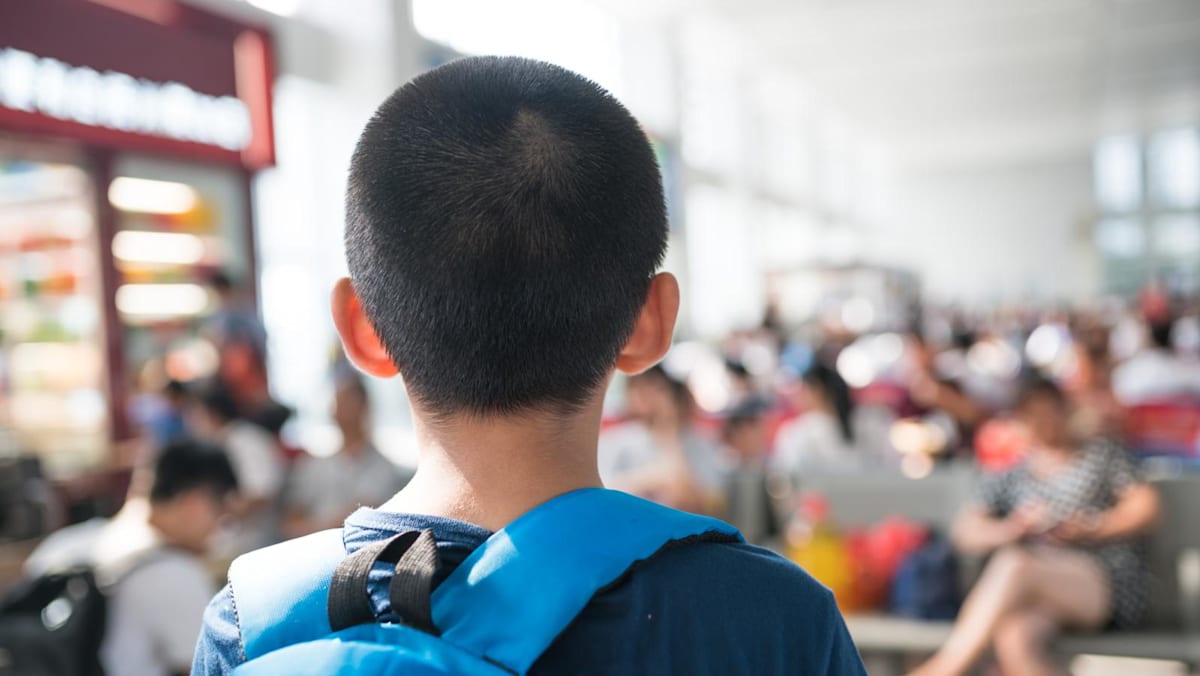There are some measures that parents can take to keep track of their children’s location, said Ms Marican.
One way would be to have their children wear a lanyard with their caregivers’ contact details. Parents can also give their children devices with location trackers.
ARC’s Dr Lam said that for children using wearable devices, parents should disable non-essential things or other applications, as these may distract the child.
For Mr Chan, whose daughters are now 17 and 14 years old, he has used different ways over the years to ensure their safety, including tracking devices and a leash.
His older daughter now has a mobile phone that allows him to track her location.
He said that when his daughters were younger, he used a leash when they were out, so he could keep them physically close. But he said the family has encountered judgmental looks and comments from others.
“For me, it’s for the safety of my children … I’ll just use it.”
Mr Chan said he hopes the government can help produce affordable and accurate tracking devices. These can be used not only by children with special needs, but also by the elderly with dementia.
CREATING A COMMUNITY
“We all live in a community, and it’s good just to look out for each other’s kids or even vulnerable adults,” said Dr Lam.
People with special needs may display behaviours that seem unusual when they are distressed, such as stomping their feet.
“The key thing … for us as a community, is, one, to withhold judgment,” he said, noting that onlookers’ first reaction may be to think the person is being naughty or that the parents are not controlling him or her.
“Just spend a bit of time … observing to see whether that person is actually in distress, then approach to help that person,” said Dr Lam.
Mr Chan said: “As caregivers, we know that we cannot hold on to them for life.
“So that’s why one of my jobs is to promote inclusivity in our society, create more awareness and acceptance so that more people are aware of the needs of our children.”
He added that he is also concerned for those who have high needs and cannot be independent, so they will need a caregiver to take care of them for life.
“If (there is) more love and care in our society, I think that will make a great difference for them.”
For his daughters, he has sought to create a supportive community around them by raising awareness and letting the neighbours know about their conditions.
The neighbour who alerted him to his missing daughter was one such example.
“My children have been staying within this community, and the earlier that I let more people know about their conditions, it will be more beneficial to them.”
Initially, he would hesitate to bring his daughters to join community events, such as the Lantern Festival, but his neighbours encouraged him to go together.
“So, my girls also got to enjoy the neighbourhood activities like other people, even though they sometimes play slowly, they don’t talk to other people, but it’s fine. People understand their condition, so they can feel welcome and not rejected.”
